Jacqueline Faulkner - Deputy Head of Junior School (Pastoral)
Ove r the years, I have adopted the phrase, "If we allow it, we teach it." This saying emphasizes the notion that what we tolerate in a learning environment becomes an unspoken lesson to students about what is acceptable behaviour or practice. In our College setting, students are constantly learning not only from what is explicitly explored in lessons, but also from the behaviours they observe or implement. If educators allow negative behaviours to occur without addressing them, students may interpret those behaviours as acceptable or even endorsed by the College. This can have significant implications for the overall learning environment and the development of students' social and emotional skills.
r the years, I have adopted the phrase, "If we allow it, we teach it." This saying emphasizes the notion that what we tolerate in a learning environment becomes an unspoken lesson to students about what is acceptable behaviour or practice. In our College setting, students are constantly learning not only from what is explicitly explored in lessons, but also from the behaviours they observe or implement. If educators allow negative behaviours to occur without addressing them, students may interpret those behaviours as acceptable or even endorsed by the College. This can have significant implications for the overall learning environment and the development of students' social and emotional skills.
Maintaining Positive Behaviour Expectations for All Students
During the mid-year break, our staff had the invaluable opportunity to participate in a day long professional learning session with Dr Brenda Heyworth, a well-respected expert in child psychiatry and educational practices. Dr Heyworth shared effective strategies for maintaining positive behaviour expectations among students, emphasizing the importance of clear agreements (rules), fair consequences, and the concept of a ‘fresh start.’
Clear and consistent agreements are the foundation of positive behaviour in any learning environment. In the Junior School, we co-collaboratively develop these with our students so they have ownership of their Class Essential Agreement. At the College, we aim to provide a structured setting where students understand what is expected of them. Dr Heyworth emphasized that well-defined rules help students feel secure and guide them towards appropriate behaviour. Here are a few key principles we follow when establishing the agreements:
- Simplicity: The agreements are kept simple, easy to understand and few in number. This ensures all students can comprehend and follow them.
- Consistency: Our essential agreements are applied consistently across all settings, whether in the classroom, on the playground, or during school events. This consistency helps reinforce the expected behaviour.
- Relevance: The agreements are relevant to the College environment and reflect our core values of integrity, growth, and community. They are designed to promote a positive learning atmosphere where every student can thrive.
Implementing Fair Consequences
Alongside clear agreements, it is essential to have fair and consistent consequences for inappropriate behaviour. Dr Heyworth highlighted the importance of consequences as a means of teaching students’ accountability for their actions while encouraging them to make better choices in the future. Here are some guidelines we follow when implementing consequences:
- Proportionality: Consequences are proportional to the behaviour. Minor infractions receive mild consequences, while more serious or repeated behaviours result in more significant consequences. This ensures that students understand the impact of their actions.
- Consistency and Fairness: Consequences are applied consistently to all students, regardless of the situation. This fairness helps maintain trust and respect between students and staff.
- Restorative Practices: We use restorative practices as part of the consequence. This might include having the student reflect on their behaviour, apologize to those affected (if the student chooses to do this), or make amends in a meaningful way. Restorative practices help students learn from their mistakes and understand the importance of repairing the harm that was caused due to their actions/choices.
The Fresh Start Approach
One of the key concepts Dr Heyworth introduced to our staff was the understanding of a ‘fresh start.’ The fresh start approach is based on the belief that every student deserves the opportunity to learn from their mistakes and start anew. This strategy encourages a positive school culture by ensuring that students are not defined by their past behaviour but are given the chance to improve and succeed. Here is how we implement the fresh start approach:
- Daily Resets: Each day is a new opportunity for students to demonstrate positive behaviour. Regardless of what happened the day before, students are encouraged to start the day with a clean slate, free from any lingering resentment or negative consequences.
- Encouraging Growth: The fresh start approach emphasizes growth and improvement. We encourage students to reflect on their behaviour, understand its impact, and make better choices moving forward.
- Building Resilience: By allowing for fresh starts, we teach students that mistakes are a natural part of learning and growing. This approach builds resilience and helps students develop a positive mindset towards overcoming challenges.
Working Together for a Positive School Environment
At St Andrews, we are committed to creating an environment where every student feels safe, respected, and supported. By implementing clear agreements, fair consequences, and the fresh start approach, we aim to maintain high behaviour expectations while promoting a culture of understanding and growth.
We believe that maintaining positive behaviour expectations is a shared responsibility between the College and parents. By working together, we can create a supportive community that cultivates positive behaviour and helps every student reach their full potential.
If you would like to engage in further reading, I would highly recommend Dr Brenda Heyworth’s book, ‘It’s a Jungle – A Parent’s Guide to Emotions and Behaviour.’
This book is also available at our Junior School Library for parents to borrow.
Let’s continue to nurture a safe and respectful community where everyone is valued.
Jacqueline Faulkner
Deputy Head of Junior School (Pastoral)





